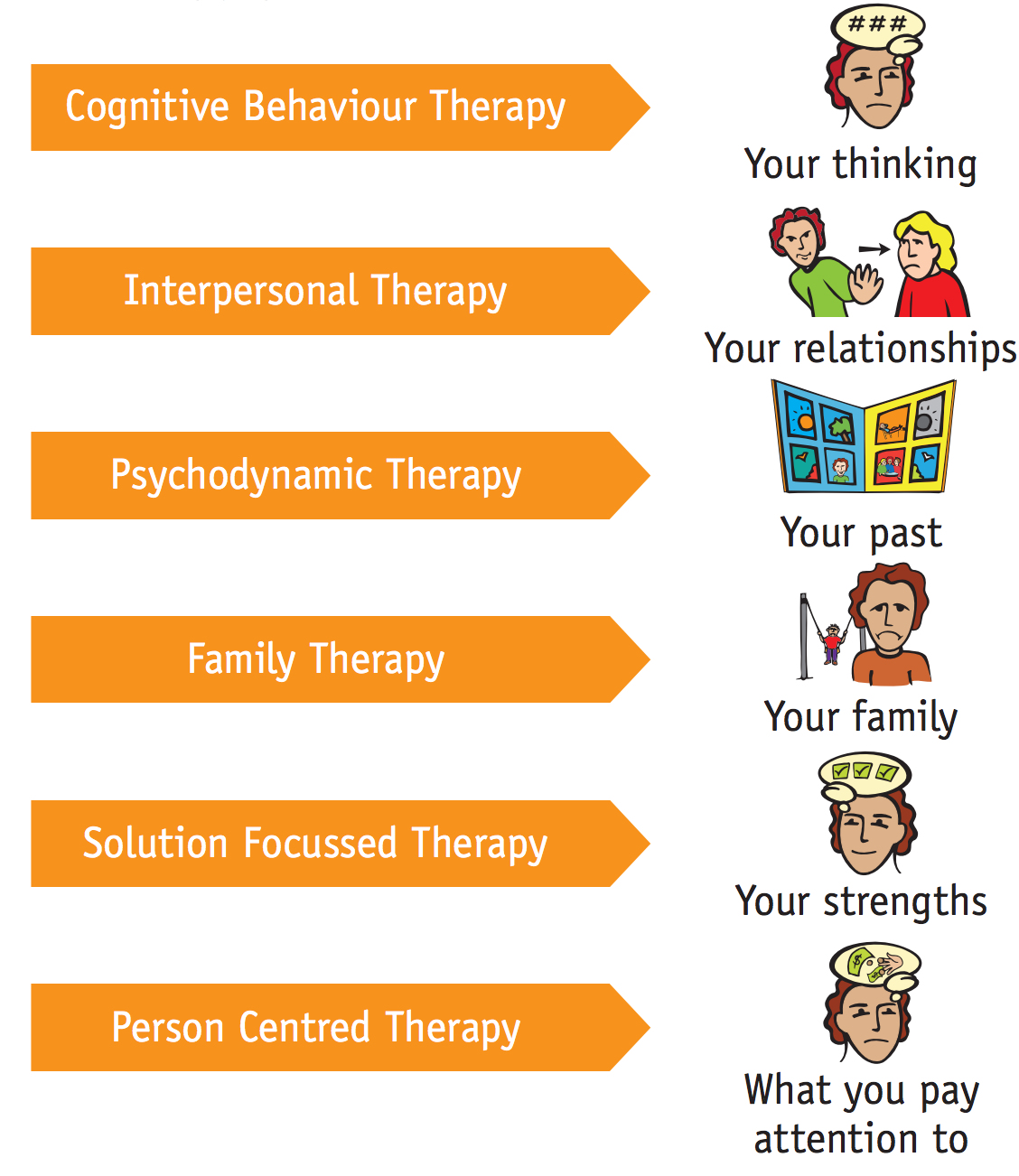Exploring the Benefits of Virtual Therapy in Modern Mental Healthcare
The surge of virtual therapy marks a substantial shift in mental health treatment. It offers improved ease of access, allowing individuals from diverse histories to seek assistance without geographical constraints. Versatility in scheduling fits varying way of lives, while the convenience of home can foster openness. However, the ramifications of these adjustments extend past simple comfort. The developing landscape of therapy raises important concerns regarding its long-term effects on person involvement and therapy end results.
Boosted Availability for All
Standard therapy typically presents barriers such as geographical area and organizing disputes, virtual therapy significantly enhances availability for people looking for psychological health support. By getting rid of the demand for physical travel, virtual therapy permits customers from remote areas or those with flexibility challenges to connect with certified experts. This mode of therapy can get to underserved populaces that might do not have regional psychological health and wellness resources, consequently attending to disparities in access to care. Furthermore, virtual systems can provide to varied demands, providing solutions in numerous languages and accommodating numerous social backgrounds. Customers can engage with a more comprehensive series of experts, offering them with alternatives that align with their certain demands and choices. This boosted accessibility fosters an extra inclusive setting, enabling individuals to seek aid without the preconception frequently connected with in-person gos to. Overall, virtual therapy stands for a substantial improvement in making mental healthcare much more accessible to all.
Versatility in Scheduling Procedure

As virtual therapy continues to get traction, its fundamental adaptability in scheduling sessions shows to be a substantial advantage for many people. Unlike standard in-person therapy, virtual therapy permits clients to pick session times that finest fit their individual and professional commitments. This flexibility suits those with demanding job timetables, family members obligations, or various other dedications that can make going to physical visits challenging.
Customers can easily reschedule or adjust their sessions as needed, lowering the stress and anxiety connected with stiff appointment systems. The availability of various time slots throughout the week, consisting of evenings and weekends, further improves access. This versatility not just urges uniformity in attendance but likewise fosters a higher commitment to the healing process. Eventually, the adaptability in organizing sessions represents a transformative shift in mental healthcare, empowering individuals to prioritize their wellness without compromising other elements of their lives.
Comfort of a Familiar Setting
The convenience of a familiar environment considerably enhances the efficiency of virtual therapy for many customers. Participating in therapy from the safety of their own homes allows individuals to feel even more secure, minimizing anxiousness that might accompany typical in-person sessions. This familiarity can help with open communication, allowing clients to express their ideas and feelings much more openly.
The existence of personal items and the capacity to control their surroundings can contribute to a feeling of safety and leisure. Customers typically report that remaining in a comfortable room permits them to concentrate a lot more on the healing procedure instead of the establishing itself.
In addition, the informal nature of virtual sessions can assist liquify obstacles that might exist in a standard office setting, cultivating a much deeper link with therapists. In general, the convenience of familiar surroundings plays a vital role in boosting the therapeutic experience and efficiency for lots of people seeking psychological wellness support.
Larger Variety of Restorative Options
A larger variety of therapeutic choices appears via virtual therapy, permitting clients to access different modalities that may not be viable in conventional settings. This versatility enables people to explore diverse strategies such as cognitive-behavioral therapy, mindfulness techniques, art therapy, and even specialized interventions like trauma-informed care or dialectical actions therapy.
Moreover, customers can pick from a more comprehensive spectrum of therapists, including those that focus on niche areas or details populations, improving the probability of discovering an appropriate suit. Virtual platforms often give access to group therapy sessions, assistance neighborhoods, and workshops that may be geographically unavailable otherwise.
This selection equips clients to participate in their healing process according to their unique preferences and requirements, possibly raising motivation and dedication to therapy. Therefore, the landscape of psychological wellness treatment comes to be much more inclusive and adaptable, dealing with a wider variety of individual experiences and challenges.
Decreased Preconception Surrounding Therapy
Accessing therapy with virtual systems contributes to a substantial decrease in the preconception traditionally related to psychological health and wellness care. By offering a very discreet and personal environment, virtual therapy permits individuals to seek aid without the worry of being evaluated or identified. This privacy allures to those who may or else wait to go after in-person therapy because of societal assumptions surrounding psychological health.
In addition, as the occurrence of virtual therapy increases, it normalizes the conversation around visit their website psychological health, making it a much more acceptable part of daily life. Individuals typically feel a lot more comfortable reviewing their experiences online, advertising visibility and reducing feelings of isolation. The ease of access of these solutions also motivates a broader market to involve with mental wellness resources, fostering a society of support instead of pity. Eventually, the increase of virtual therapy plays an essential function in reshaping perspectives in the direction of seeking assistance, adding to a much more accepting culture concerning psychological health and wellness challenges.
Cost-Effectiveness and Price

Decreased Session Expenses
Numerous individuals seeking mental health support find that virtual therapy considerably lowers session costs compared to standard in-person alternatives. The removal of traveling costs and pause work commonly adds to overall financial savings. In addition, several virtual specialists offer affordable prices as a result of lower overhanging expenses linked with preserving a physical office. This change in expenditure allows clients to gain access to high quality psychological health and wellness services without the economic strain that may include standard therapy. For many, this price makes it possible for a lot more frequent sessions, which can enhance treatment outcomes. As a result, virtual therapy not just democratizes accessibility to mental wellness treatment however also offers a lasting financial model that lines up with customers' budget plans, making psychological health support much more obtainable for a wider her comment is here target market.
Broadened Accessibility Choices
While typical therapy frequently offers logistical obstacles, virtual therapy considerably broadens gain access to options for individuals seeking mental health treatment. By getting rid of the demand for travel and permitting versatile scheduling, virtual therapy accommodates diverse way of lives and dedications. This accessibility is specifically advantageous for those in remote areas or with mobility challenges. Additionally, the cost-effectiveness of virtual therapy decreases economic strain, making psychological wellness solutions extra reachable. Many platforms provide tiered rates or moving range charges, advertising price. Insurance coverage business increasingly recognize virtual therapy, more enhancing its economic ease of access. Generally, virtual therapy not just widens the extent of that can obtain care yet likewise addresses economic obstacles, making psychological wellness support more comprehensive and achievable for all.
Enhanced Connection of Treatment
Enhanced connection of care emerges as a significant advantage of virtual therapy in modern-day mental health and wellness care. This method enables clients to keep consistent communication with their therapists, no matter of geographical barriers or scheduling conflicts. adhd counselling. The versatility of virtual sessions cultivates normal check-ins, which are important for keeping an eye on progression and adjusting treatment plans as necessary
Additionally, digital wellness records and telehealth platforms facilitate smooth info sharing among care carriers. This interconnectedness ensures that all professionals associated with a client's treatment are upgraded on therapy developments, resulting in more worked with and reliable treatments.
Clients commonly experience reduced anxiety and increased interaction because of the benefit of accessing therapy from familiar settings. Such ease of access improves adherence to therapy regimens, ultimately improving end results - adhd helpful hints counselling. To summarize, virtual therapy not just bridges spaces in psychological health services yet likewise fortifies the continuity of care, a crucial component of effective therapeutic partnerships
Frequently Asked Questions
How Does Virtual Therapy Make Certain Privacy and Personal Privacy for Clients?
The current question addresses the steps virtual therapy uses to protect client discretion. Making use of encrypted platforms, safe and secure logins, and conformity with regulations like HIPAA, virtual therapy warranties that sensitive details continues to be exclusive and inaccessible to unauthorized individuals.
Can I Switch Over Therapists Conveniently in Virtual Therapy?
Changing specialists in virtual therapy is usually simple. Clients can connect their desire for a change via the system, permitting for versatility in finding a far better suit without the logistical challenges of in-person appointments.
What Modern technology Do I Need for Virtual Therapy Procedure?
To join virtual therapy sessions, an individual commonly needs a reputable internet connection, a computer or mobile phone with a video camera and microphone, and accessibility to a safe video conferencing system defined by their therapist.

Are Virtual Therapy Sessions as Effective as In-Person Procedure?
Recent researches suggest that virtual therapy sessions can be similarly efficient as in-person sessions, depending on the individual's preferences and situations. Elements such as convenience and accessibility might boost the overall therapeutic experience for some clients.
What Should I Do if I Experience Technical Issues During a Session?
If technological problems emerge during a session, one need to steadly connect the issue to the therapist, attempt to reconnect, or switch to a back-up approach. Perseverance and adaptability are vital in managing these disruptions.